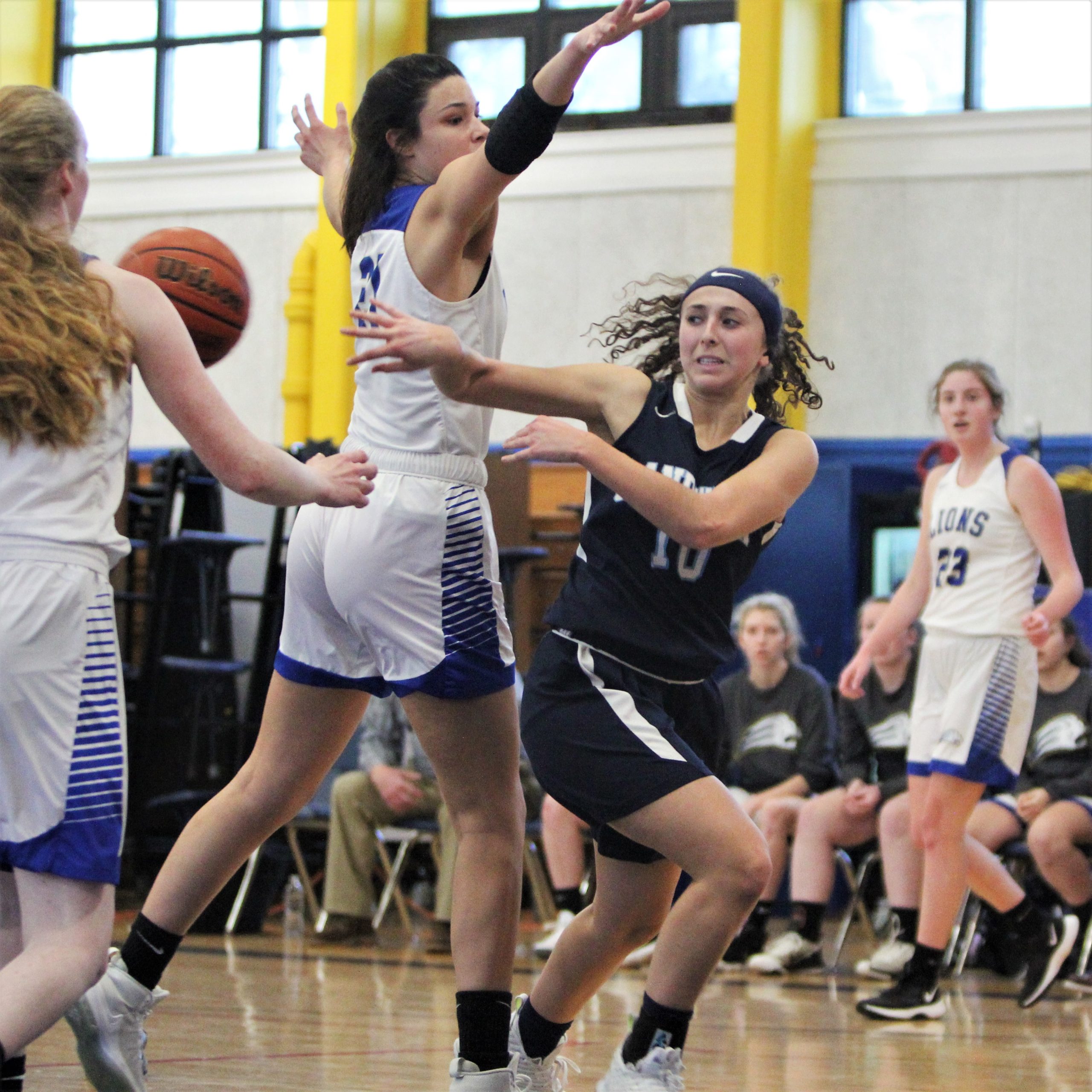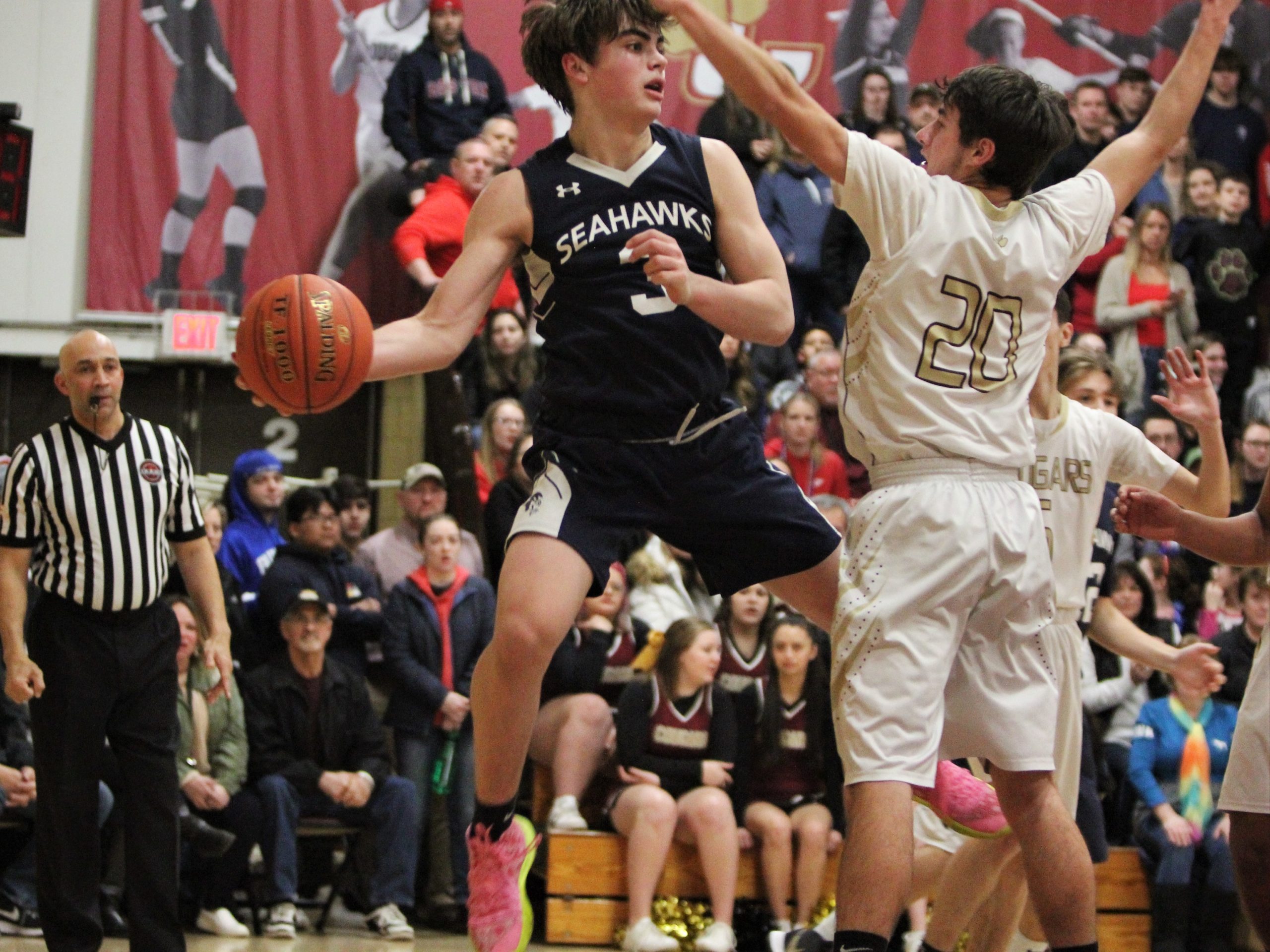Developing Decision Making in Your Basketball Program
Just one off-the-court or on the court decision by a coach or player can affect a key game or an entire season. Think of all of the hours that you and your players spend before and during each season, so that you have the best team that you can have. Also consider that your competition may be putting in as much time as you do, and may have as much talent as your team has. So sometimes it’s the intangibles that make the difference.
The purpose of this article is to reinforce the importance of one of these intangibles, sound decision making, and to indicate some of the major decisions that you and your players should be prepared to make.

- What expectations do you have for your player’s behavior inside of the classroom and outside of the school area?
- How will you monitor your player’s behavior inside of the classroom and outside of the school area?
- What are the academic expectations that you have for your players? How will you make sure that they meet these expectations?
- How will you work with the educators at your school to improve your player’s academic performance and behavior?
- How will you work with your players to improve their academic performance and behavior?
- What consequences will players face if they don’t meet your behavioral or academic expectations?
- How will you balance the time needs of your players so that they can maximize their basketball potential on the court and their academic potential in the classroom?
- How will you as a coach relate to basketball officials during games? Under what circumstances would you challenge their calls, and how would you do this?
- If the other coach’s strategy is to berate the officials to obtain the calls, will you use the same tactics if that coach is getting the calls in his or her favor?
- How do you want your players to relate to basketball officials? Will you set a positive example for your players in regard to how to treat officials?
- Will all of your players have to abide by team rules or will there be special rules for your star players? Will you treat all of your players the same, or will you individualize this treatment? How will you respond to complaints that you favor certain players?
- How will you help your players to deal with the problems that go with college recruitment?
- What kind of balance will you maintain in regard to the needs of your team, the needs of your own family, the needs of your teaching or other jobs, and your need to get enough rest?
- To what extent will you involve parents in your program?
- How will you make sure that parents do not improperly influence your decision making?
- Will you permit parents to attend your practice sessions? If you allow them to do this, will you have a policy in regard to how they should act before, during, and after practice?
- How will you react to a parent who wants to talk to you about their son or daughter’s playing time?
- How will you promote your team to your community?
- How will you relate to the media before and after games?
- What kind of a pre-season conditioning program will you have for your players?
- Will you have your kids warm-up a little before they stretch both before both practices and games?
- In addition to your whole team motivational plans, will you also have individual motivational plans for each player, once you get a chance to know them?
- Will you prepare your team to face opponents who try to shorten the game with offensive and defensive tactics?
- Will your pre-season schedule find that balance between challenging your players and building their confidence?
- What will be the three major basketball goals for your team?
Coaches make many on-the court-decision decisions that affect a team’s performance, including those that relate to the following:
What are the on the court behavioral expectations that you will have for your players, and how will you make sure that they meet these expectations? Will you allot enough practice time to improve fundamental skills, free-throw shooting, and late-game situations? Will you defend a great offensive player on the other team by shutting down that player, or will you just try to limit this player’s production and shut down the rest of the team? Will you defend a star player late in the game in the same way that you do during most of the game? If you have an outstanding offensive player, what kind of balance will you strike between the need to use that player’s talent and the needs of your other players to be involved in the offense throughout the game?
What might cause you to take a very early game timeout? If one of your best players picks up two personal fouls in the first half, will you take that player out of the game for the rest of the half? If you are ahead late in a game, at what point will you have your offense use more clock time given your team’s abilities and mindset? If you are up by three points with under ten seconds left in the game and they have the ball, do you foul one of the other team’s players, and If you do so, at which time and place do you want your players to foul?
As a coach, guide your players to make sound decisions related to the following off the court questions:
- Will you as a player decide that you will keep in mind that what you do on and off of the court not only affects you and your teammates but also affects your family?
- Will you give your best effort in the classroom?
- Will you prepare in school so that you have a backup career, just in case you don’t make the pros, or in case an injury forces you to retire from the pros sooner than you would like?
- If your academic career is not what it should be, what might you yourself do to improve it? Also from whom might you get help at your school?
- With which kinds of people will you associate off of the basketball court?
- Will you eat the right foods and get sufficient sleep so that you can give your best in the classroom and on the court?
- How much emphasis will you place on your team’s achievements as opposed to your own individual achievements?
- What will you do in the preseason to get in the best possible basketball condition that you can for the regular season?
- Will you warm up and stretch before your own informal workouts?
- What are the skills on which you need to work the most in your offseason program?
- What are some possible barriers to your own progress off of the basketball court? What do you plan to do to eliminate those barriers to your progress?
As a coach, help your players to make the right on the basketball court decisions related to the following:

Will you as a player make anticipation a mental habit? What are some possible barriers to your own progress on the court, and what do you plan to do to eliminate those barriers to your progress? Will you take the type of shots that are good ones for both you and for your team? Will you give the proper focus and work to improve your free throw shooting? Will you learn the offensive strengths and weaknesses of players that you may cover? Will you make stopping the other team’s fast break your number one priority, after you make a great offensive play? Will you avoid the 3 Fs on defense (foolish fouls that are fatal) such as fouling players who are out of control, players who are behind the backboard, players who are going to make a layup even if you do foul them, etc.?
On defense, will you avoid jumping into the air when you are defending a three-point shooter? On offense will you avoid dribbling out of control or dribbling into traps including those along the baseline or those right beyond the half-court area? Will avoid picking up your dribble once you cross mid-court against a press or half-court man to man strong ball pressure? Will you eliminate telegraphed passes? Will you use pass fakes and discreet bounce passes? Will you learn what your role is on your team and will you carry out that role? Will you be a team leader in the best way that suits your personality?
It is imperative that you as a coach educate your players to understand how important their decisions are to their team’s success.
The following are some possible ways by which you can do this:
During your individual talks with players, in your meetings, and during group discussions with them, consistently emphasize the importance of making sound decisions. Bring in a respected community person, possibly a former player, to speak to your team on this topic. In your practices, as often as it is practically possible, give players credit when they make sound decisions. Take some practice time or meeting time to watch a video of parts of professional, college, or high school games where a particular had a huge impact upon the game’s outcome, and have your players identify good and poor decisions that were made during those games.
» ALSO SEE: Get to the Line More with Isolation Plays
Take your team to the theatre to watch a movie in which a great decision makes all of the difference. Post news clippings in the locker room area related to sound or unsound decisions. Provide websites related to decision-making skills and major life decisions. Bring an educator to a team meeting who will briefly review the decision-making process. Have a former respected college coach talk about how to deal with the college recruiting process.
Wrap-Up
If fouling negates hustle, poor decision making negates all of the hard work that coaches and players do before and during a season. Hopefully, you and your players will have sound decision-making skills during this season and their life beyond basketball success.









